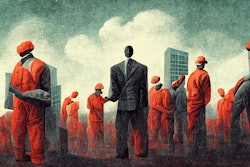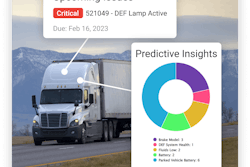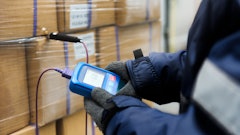
I'm almost certain this won't be the first article you come across this week talking about ChatGPT. Since its release back in November 2022, the OpenAI bot tool has been taking the news, and the world frankly, by storm. According to Business Insider, chat bots like GPT are powered by large amounts of data and computing techniques to make predictions that string words together in a meaningful way. From creating meal plans to teaching physics, this technology has been dubbed the "smarter Google" by many, and industries are taking notice.
So, what about its use in logistics and supply chain?
We continue to see the rise of AI for technology in the supply chain space due to the process capabilities that save time, money and create in-depth reporting for data use. According to Priyesh Ranjan, CEO of Vorto, AI is well-suited for the environment of logistics, which is often in a state of constant evolution, as new variables are introduced, and disruptions arise.
"The dynamic and interconnected supply chain forces constant communication between shippers, carriers and suppliers for ordering products, scheduling appointment times, communicating with the carrier about delivery, solving for unpredictable but inevitable problems that arise in transit and communicating with the shipper and the receiver about delivery," says Ranjan. "We believe ChatGPT would be a superior tool for dealing with that dynamic communication and solving for logistics challenges quickly and optimally across the separate but interconnected domains of shippers, suppliers, warehouses and truckers."
Utilizing ChatGPT as resources to predict and plan for delays, as well as strategy, could prove beneficial specifically for shippers and suppliers, where communication needs timely answers to offer a seamless service. The supply chain depends on complex communication in order to keep each moving part on track— from supply, shipping, storage and last-mile.
Ranjan explains, "These domains are each individually complicated and nuanced, and the frequent crossover causes challenges because communicating effectively and at a high level to solve problems is so difficult; ChatGPT can bridge these divides across domains and raise the level of communication to levels that will allow for better outcomes."
And although this seems futuristic enough, the possibilities for the future — of AI technology like ChatGPT or others that come along — is hard to predict.
"Because OpenAI is so powerful, we are unable to predict all the knock-on effects which could substantially reorder and disrupt supply chain," says Ranjan. "Since supply chain is at the core of the trade and commerce that impacts everyone on the planet, supply chain will be where we experience some of the most far-reaching impacts from OpenAI. Think of how the COVID-19 lockdowns briefly disrupted supply chain and how that led to toilet paper shortages. Likewise, the potential impacts from OpenAI on supply chain will be vast, unpredictable and experienced by everyone."
Though the use of ChatGPT for one case or another is varied, the options truly aren't known until you try. As for job security and the fear that ChatGPT could fill the spot of a human worker, the current technology, known as "large language model tools," doesn't have the sentience that people do — and that means, at the end of the day there will always be a human behind the technology, offering the key knowledge and "feelings" in its utility. At least for now.




















